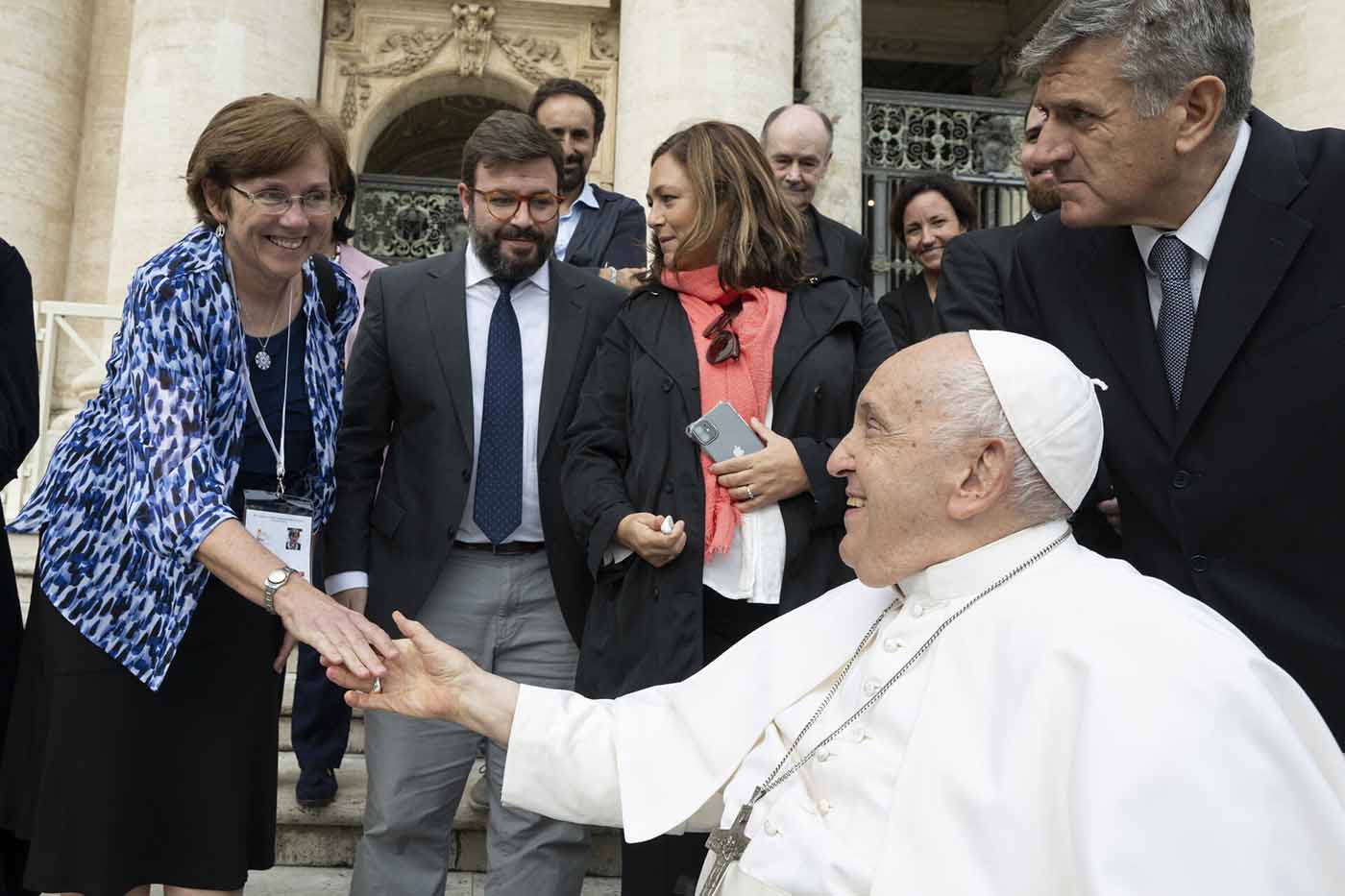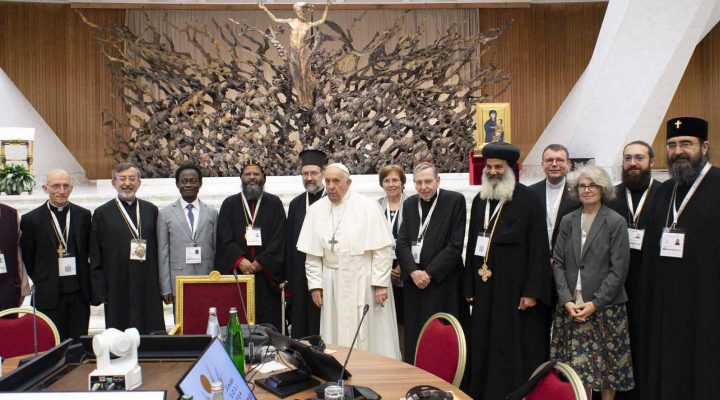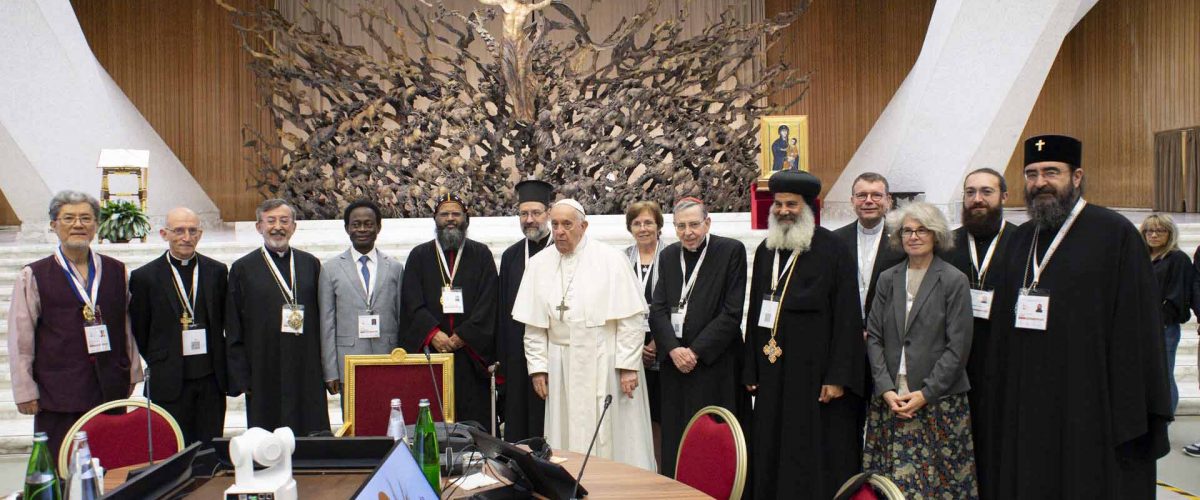For two weeks in October, Elizabeth Newman served as the only woman and only Baptist representative to the Vatican’s international Synod on Synodality.
One of the many lessons the ethicist and theologian learned in Rome was how to explain to fellow Baptists and other Protestants what the event’s title even means.
“‘Synodality’ is a largely unknown word, even among many Catholics. It means walking together, or accompaniment. It is very much rooted in, ‘Let’s do this differently, not only by staking out positions, but by trying to be present with one another in a non-reactive way,’” she explained.
Newman taught theology and ethics for 17 years at the now-closed Baptist Theological Seminary at Richmond. She continues to teach as an adjunct professor in theology at Baptist House of Studies at Duke Divinity School and at the Baptist House of Studies at Union Presbyterian Seminary in Richmond.
But it was her credentials in the world of ecumenical dialogue that landed her a seat as one of 12 fraternal delegates to the synod convened by Pope Francis. She serves as chair of the Baptist World Alliance’s Commission on Baptist Doctrine and Christian Unity, and she is co-chair of the Baptist-Catholic dialogues led by BWA and the Pontifical Council for Promoting Christian Unity.

Baptist theologian Elizabeth Newman greets Pope Francis at the Vatican.
While the synod was attended by hundreds of voting Catholic laity and clergy, the process was designed to make the non-voting ecumenical delegates feel welcome and included, she said. “It started with a retreat for several days, then there were ecumenical prayer services. The way it was done really embodied one of the main goals of the synod, which was a focus on listening.”
Newman noted the Catholic Church invited delegates from a variety of Orthodox and Protestant churches to the summit. “There were 12 of us from different traditions. I represented the Baptist World Alliance for two weeks, and then my colleague, French Baptist Valerie Duval-Poujol, attended the final week of the synod as the BWA fraternal delegate.”
The focus on listening was an approach Pope Francis envisioned in convening the unprecedented gathering designed to chart the Catholic Church’s course through challenging issues such as evangelism, reaching the young, clergy sexual abuse, the acceptance of LGBTQ Christians and women’s ordination.
While the summit’s first report disappointed many in those camps, Francis and his supporters say it is the synodal process that will define the church moving forward.
“The process was unique. It was contemplative,” Newman said. “When we met, it was around tables of 12 listening to one another. Each of us was invited to speak, and then we would pause for 20 to 25 minutes and simply remain in silence. And every session opened and closed in prayer.”
Dialogue revolved around topic modules in which participants were asked to discern where they agreed or disagreed, and then to develop questions.
“The emphasis was on listening through the power of the Holy Spirit. From that point of view, the Holy Spirit becomes the protagonist.”
Participants also were aware of the criticism of the approach, namely that listening doesn’t necessarily produce results, she said. “The emphasis was on listening through the power of the Holy Spirit. From that point of view, the Holy Spirit becomes the protagonist.”
One of the topics to which Newman gravitated was how the gifts of women can be more fully included into the life of the church. Proposals included revisiting the order of the deaconess and developing more openness toward women in positions of authority in the Catholic Church.
“It was moving,” Newman said. “There were women from all over the world speaking along the lines of their co-responsibility in the mission of the church and how to help everyone know the church is about being missional, not just hierarchical. Women were saying they want to be involved.”
While the issue of ecumenism was not formally discussed during the synod, the inclusion of fraternal delegates in discussions made it clear the Vatican has a concern for dialogue with Protestant and Orthodox Christians, she said. “I loved the emphasis on the unity of the church, and what leaders said to me and to others is that you were not just invited here as an ornament.”
Also striking was the synod’s concern with the issue of fully engaging young people as well as the “digital continent,” Newman said. “One sister I had dinner with was from Nicaragua. She has a Tik-Tok presence where young people can ask her questions.”
It also was clear from the process and content of the event that the Vatican is seeking a path through division even when agreement is scarce, the Baptist theologian observed. “I see this as a way Pope Francis and the Catholic Church are trying to provide an alternative to polarization by asking how we can share and how we can listen to one another about the problems we share together. It was very pastoral in that sense. Historically, it was very unique.”


